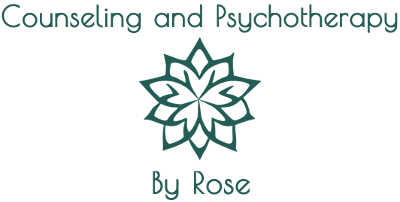Why Can’t My Partner Listen To Me?! How understanding your partner can be threatening – and what to do about it.
Why Can’t My Partner Listen To Me?! How understanding your partner can be threatening – and what to do about it.

“I don’t get it,” says a 30-something woman in my office. “He doesn’t seem to hear what I am saying. I can tell him over and over again how I am feeling, and he just sits there or disagrees. It’s been like this for so long, I really don’t think he’ll ever understand me.” “I do understand you,” says her husband quietly. “I listen to you all of the time. It’s you who doesn’t understand me.”
How does this happen? How do you go from feeling like soul mates to feeling like a stranger would understand you better than your partner does?
One reason is that the stranger has a lot less to lose than your partner does. Real understanding, what I would call empathic understanding, requires more than just hearing the words that come out of your mouth. To really GET what you are trying to communicate requires diving into your reality, seeing the world as you see it, and feeling the way you would feel about it from that perspective. Knowing your partner GETS you can be powerful. Seems easy enough, right?
Wrong! Issues of understanding each other typically come up when our partner’s reality threatens our own. If our feelings, needs, or understanding of the world are threatened, empathy might feel impossible. Below are the top five times when empathizing with your partner can feel threatening:
- Threat #1: You don’t agree with their facts.
Imagine your partner tells you how upset they are about you not washing the dishes the night before. If you did wash the dishes, it might be difficult for you to suspend your sense of reality to dive into theirs. You end up pointing out that the facts underlying your partner’s feelings are incorrect, assuming that this will clear things up. You are surprised to see your partner getting even angrier, claiming you never listen. How do you understand your partner’s feelings if they are just wrong?
- Threat #2: You don’t agree with their conclusion.
Imagine your partner tells you that Thanksgiving should be at your parents’ house this year because your partner feels too stressed to host. You love your tradition of hosting Thanksgiving, and your parents’ house is too small. You tell your partner that, and are surprised that they get even angrier, claiming you never listen or dismiss them. How do you understand your partner’s feelings if you do not want to do what they are suggesting?
- Threat #3: Their reality is offensive.
Imagine your partner tells you that your laziness is upsetting them. You feel like you work hard and are deeply offended by their statement. You defend yourself, reciting all of the things you do for your partner and your relationship. Your partner shuts down and walks out of the room, claiming that you don’t listen. How do you understand your partner’s feelings if you are even more hurt?
- Threat #4: You want to be heard.
Imagine that you approached your partner to talk about something that was bothering you. Your partner immediately shuts down and tells you how upsetting your complaint is to them. You reiterate what you initially said. They shut down even more and say you don’t listen to them. How do you understand your partner’s feelings if they don’t seem to be understanding yours?
- Threat #5: History.
It does not take long for many of these threats to materialize in an ongoing conversation, where you both are triggered. Many of these triggers are based on old wounds. When you sense that the same is happening again, you may bounce right back to a feeling of hopelessness, anger, and resentment. Distressed couples tend to show rigid response styles, and you may find yourself responding in the same way as so many times in the past, expecting your partner to do the same. How do you understand your partner’s feelings if it’s the same old ping pong argument that hurts you both and never resolves anything?
You may recognize one or more of these threats from your recent conversations. Sometimes, understanding someone else’s reality can feel impossible on your own, especially if you are struggling with your own triggers during the conversation. In these cases, a stranger would in fact be a better listener than you would.
Here are some tips to hear and be heard:
Tips for Being Heard:
You might have some ideas about how to be heard from the discussion above. Avoiding explicit or implicit threats, like those discussed above, goes a long way. Try:
- Connecting with and communicating your softer emotions, such as fears, sadness, and longing for connection with your partner.
- Avoid generalizations, such as “always” or “never”.
- Stick to “I” statements, rather than statements that start with “you.”
- Avoid expressing judgments about what your partner was meaning or doing – try to keep your statements about observable facts, your feelings, and your underlying needs.
- Try specifically requesting a future action. Don’t stop at what is bothering you.
- For a simple, 2 sentence template for communicating your feelings, check out my previous article here.
Tips for Listening:
So, how do you not only get through threatening communication from your partner, but also let them know that you DO understand? I am not going to lie – this can be very difficult, but without really getting your partner’s perspective on an important issue, finding a solution is nearly impossible. Finding a solution is also less important, for a happy relationship, than having real empathy between you. Here are some tips:
- Act like you are listening to a friend or stranger talk about their own inner life. You might find that you are more receptive to your partner’s reality if you are not trying to fit it into your own.
- If you cannot immediately empathize with what your partner is going through, try to reflect back to them what they have said, but in your own words. This can keep your mind on task, instead of busy coming up with rebuttals.
- If your partner feels like your restatement got it wrong somewhere, try again until they agree that you got it right. Remember that the point of this is to understand what your partner is saying. You do not need to agree with their reality or their solution.
- After your partner agrees that your restatement is right, try to imagine feeling and thinking like your partner has described. How else would you feel? Try communicating what you imagine your partner might be feeling to your partner.
- For a short exercise that can keep you on task when you listen, check out my previous article here.
Lastly, it is in exactly the situations when both members of the couple are triggered when couples counseling (or marital counseling) can help transform your relationship. A relationship therapist can sit with you both in a room, listening to each of your realities without being threatened by them. A good therapist can listen, understand, and empathize with each one of you, translate to both you and your partner, and help you both understand and take care of the underlying needs of the other. The therapist may also guide you through experiences in the therapy room that can help you regain the trust, support, and sense of safety you may have lost because of the threatening conversations that overtook your relationship in the past.
If you are feeling stuck, misunderstood, and unhappy in your relationship, I urge you to try couples counseling with your partner. Emotionally-Focused Therapy is one very effective type of couples therapy, which aims at making your relationship safe, supportive, and emotionally connected again. There are some really wonderful couples therapists out there who can help you recharge your relationship, but there are also some not-so-good therapists out there. Feel free to try a new therapist if the one you choose initially does not seem to work for you.
If you are in the Los Angeles or Orange County, California areas and are interested in working to recover, reconnect, and rekindle your relationship, I would be happy to work with you. Please feel free to contact me at (424) 571-2273 or request an appointment through my website, https://www.couplescalifornia.com or https://counselingsocal.com.

